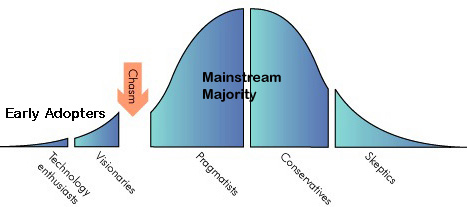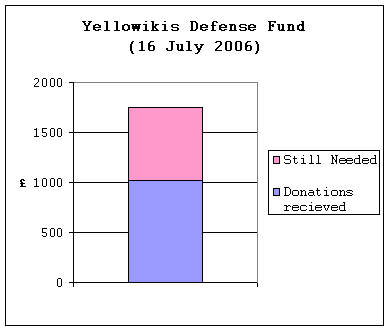The Recording Industry Association of America (RIAA) has filed thousands of copyright infringement lawsuits against filer sharers on networks like Kazaa and Napster, who have all accepted to pay damages to avoid going to court.
The recording industry has artfully developed a variation of the “John Doe” lawsuit program that offers plaintiffs the opportunity to settle. After learning the identity of an illegal file sharer through a “John Doe” lawsuit, but prior to amending the complaint to reflect the infringer’s name and address, the RIAA offers the opportunity to settle the case before proceeding further with the litigation. So far, all the accused Kazaa and Napster users have had no recourse but to settle, paying $2000-$3000 to the RIAA.
Enter Shawn Hogan.

|
Shawn is founder and CEO of Digital Point Solutions, and with clients like Disney, he is not short of a buck or two. Last November Shawn got a call from a lawyer at the Motion Pictures Associaiont of America (MPAA), in which he was accused of downloading a film on BitTorrent, another file sharing network. He was given warning that he was to be taken to court unless he paid $2500. |
Shawn denied any wrong doing, and has evidence that he had already purchased the DVD in question. After some careful thought, Shawn has decided to set aside a hundred thousand dollars to pursue the case through the courts. Shawn has to countersue and win damages so it sets a legal precident for a class action lawsuit against the MPAA.
The MPAA has responded, “Mr. Hogan has said, he is absolutely going to go to trial, and that is his prerogative” says John G. Malcolm, the MPAA’s head of antipiracy. “We look forward to addressing his issues in a court of law”.
If Shawn wins the case, the MPAA will have stop its terror campaign on the millions of file-sharers. Morever, they will have to pay damages to many of the people from which they extorted a settlement, typically children, students and pensioners. A heroic deed.

|
Wired article reported the case as Shawn Hogan Hero. Shawn insists on his blog that he is not a hero, and he directs the thousands of donation offers to the Electronic Frontier Foundation which fights the copyright abuse by the music and film industry. |








